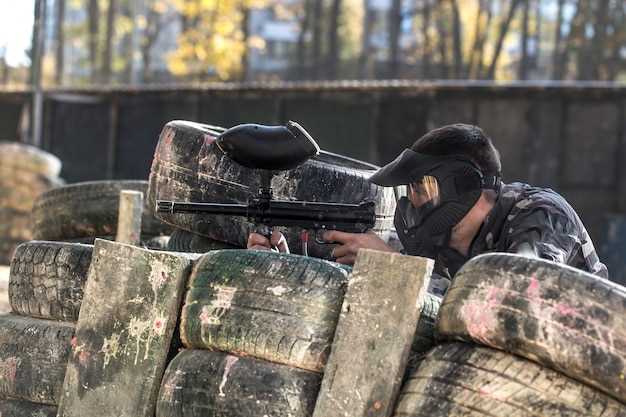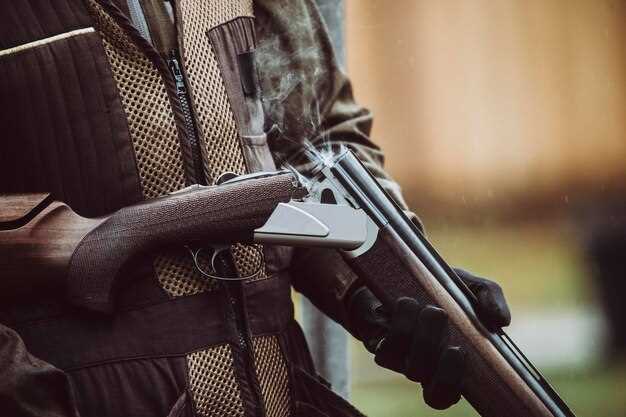
Legal considerations for crossbow hunting

As the popularity of crossbow hunting continues to grow, understanding the rules governing this practice has become increasingly important for hunters. Crossbows offer a unique combination of ease of use and power, making them an attractive option for both seasoned hunters and newcomers alike. However, with this increased interest comes the necessity to navigate the complex landscape of hunting regulations that vary by state and country.
This article aims to provide a comprehensive overview of the legal aspects surrounding crossbow hunting. Specific rules regarding equipment, seasons, and licensing can differ dramatically, reflecting regional wildlife management strategies and conservation goals. Moreover, it is essential for hunters to remain informed about these regulations to ensure that their activities are lawful and ethical.
Understanding the regulations surrounding crossbow use not only helps in maintaining compliance with the law but also encourages responsible hunting practices that safeguard wildlife populations. By grasping these essential legal aspects, hunters can enjoy their sport while contributing positively to the ecosystems they engage with.
State-Specific Crossbow Hunting Laws: What You Need to Know

In the United States, crossbow hunting laws vary significantly from state to state, creating a complex legal landscape for hunters. Understanding these regulations is essential for anyone considering crossbow hunting, as compliance is necessary to avoid legal issues while enjoying the sport.
Some states permit the use of crossbows during all hunting seasons, while others restrict their use to specific seasons or hunting circumstances, such as during archery-only periods or for individuals with disabilities. Additionally, certain states may require a special crossbow permit, which could involve passing a safety course or meeting certain age requirements.
Furthermore, the definition of what constitutes a legal crossbow can differ. Regulations may stipulate minimum draw weight, dimensions, and even types of sights and accessories allowed. It is crucial to review your state’s specific laws prior to purchasing and using a crossbow.
In many states, hunting licenses are mandatory, and hunters may need to adhere to regulations regarding the types of game that can be hunted with a crossbow. Species-specific rules ensure the ethical practice of hunting and contribute to wildlife conservation efforts. Note that some game may be illegal to hunt with a crossbow, making it important to verify permissible species in your area.
Finally, hunting on private property may have additional stipulations. Landowners may impose their own rules regarding the use of crossbows, and obtaining permission is always necessary. Familiarizing yourself with both state laws and local regulations is imperative for any responsible crossbow hunter.
Permits and Licensing Requirements for Crossbow Hunters

Crossbow hunting regulations vary significantly by region, with specific laws governing the permits and licenses required for hunters. Most jurisdictions mandate that individuals obtain a hunting license before engaging in crossbow hunting activities. This typically involves completing a hunter safety course, which is designed to educate new hunters about safe practices, ethics, and wildlife conservation.
In addition to general hunting licenses, some areas may require a specific crossbow hunting permit. This permit is often issued as part of a seasonal licensing process and may include additional fees. Hunters must familiarize themselves with local regulations regarding seasons, bag limits, and allowed hunting areas, as these rules can differ widely even within the same state.
Certain jurisdictions may impose restrictions on the types of crossbows permitted, including regulations concerning draw weight, size, and technology used in crossbows. Compliance with these technical specifications is crucial to ensure that hunters are operating within the bounds of the law.
When pursuing crossbow hunting, it is essential to verify specific requirements through local wildlife agencies or departments of natural resources. These organizations provide up-to-date information on laws and regulations governing hunting activities, including how to acquire necessary permits and licenses.
Failure to obtain the proper permits or comply with licensing requirements can lead to significant penalties, including fines and potential loss of hunting privileges. Therefore, prospective crossbow hunters should ensure they have all required documentation before heading into the field, thereby promoting responsible hunting practices and sustainable wildlife management.
Compliance with Safety Standards and Equipment Regulations
When engaging in hunting activities with a crossbow, compliance with safety standards and equipment regulations is paramount. Adhering to these rules ensures not only the safety of the hunter but also the protection of others in the vicinity. Crossbows must meet specific criteria set forth by regulatory bodies to be deemed suitable for hunting.
Firstly, hunters should ensure that their crossbows are manufactured to meet the established safety and performance guidelines. This includes verifying that the crossbow has been tested for durability and accuracy, as well as confirming that it operates effectively without malfunction. Equipment should bear the necessary certifications to validate its compliance with industry standards.
Additionally, hunters must be aware of the legal requirements regarding the maintenance and inspection of their crossbows. Regular checks are necessary to identify any wear or damage that could compromise safety. Proper maintenance not only extends the lifespan of the equipment but also enhances a hunter’s overall performance in the field.
Moreover, rules regarding the usage of hunting accessories, such as bolts and scopes, also fall under the purview of safety regulations. Specifications about the weight, length, and material of bolts must be adhered to, as these factors influence both performance and safety. Equipping a crossbow with substandard or incompatible accessories can lead to dangerous situations.
Finally, understanding the local hunting laws is vital. Different regions may impose specific regulations relating to crossbow hunting, including age restrictions, designated hunting seasons, and land usage limitations. Hunters must familiarize themselves with these regulations to ensure a legal and safe hunting experience.




